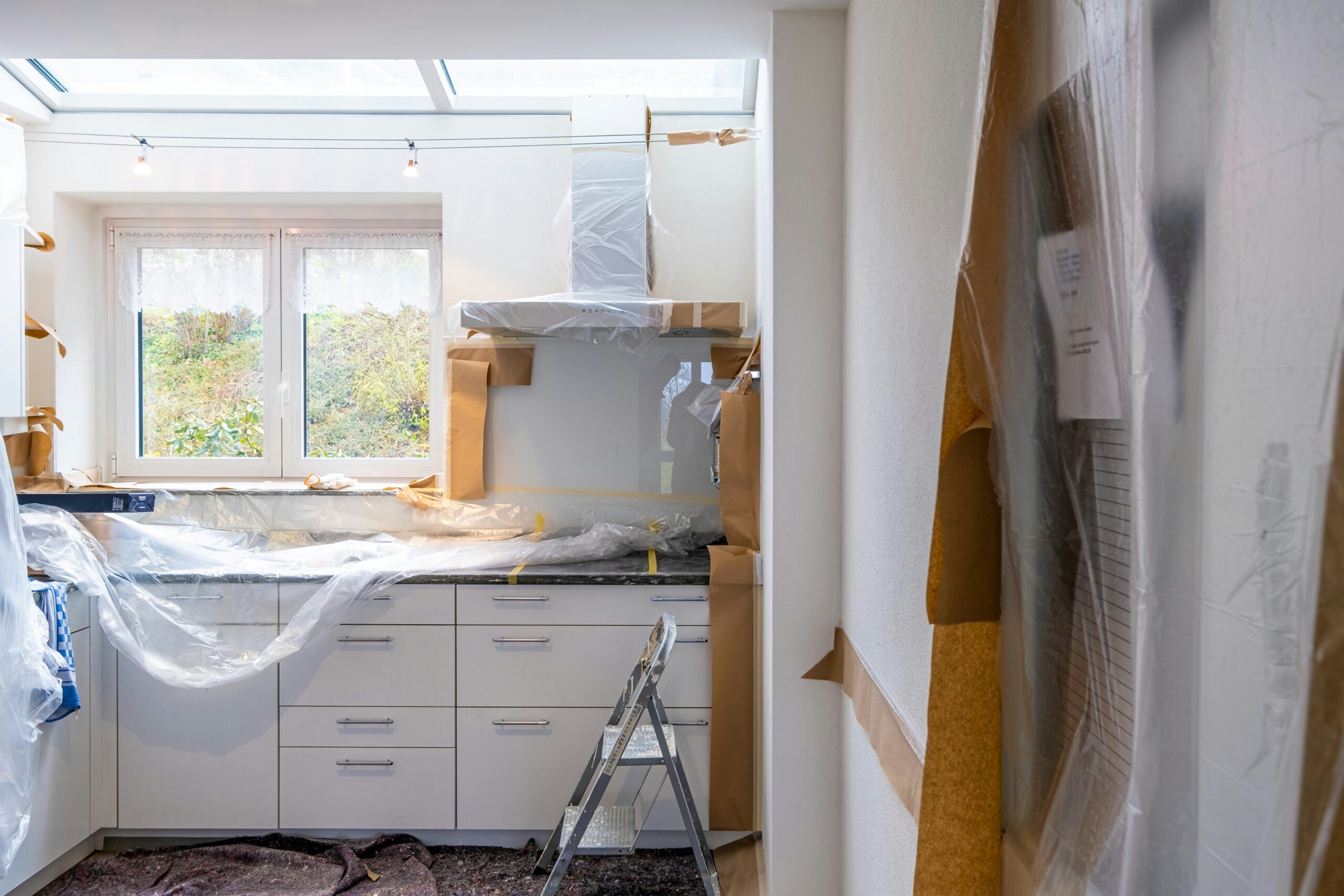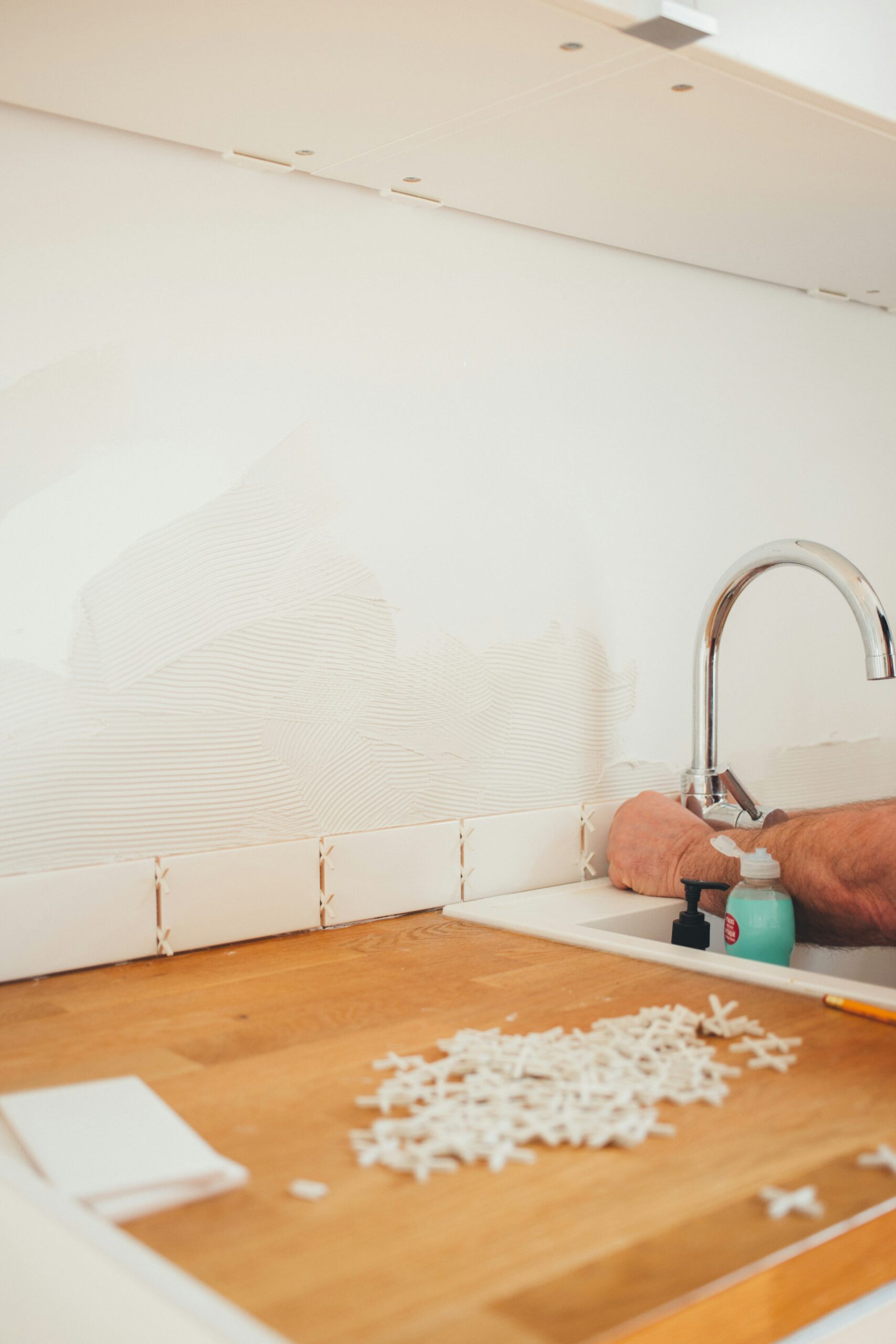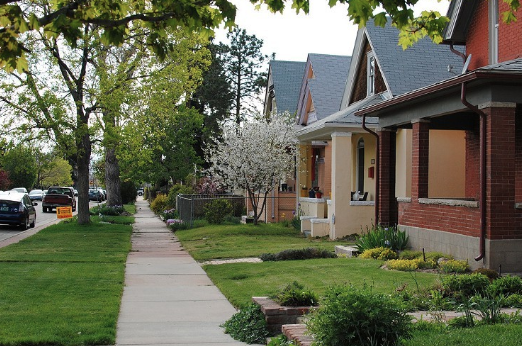5 Kitchen Renovation Mistakes That Kill Your Home’s Value
June 19, 2025
5 Kitchen Renovation Mistakes That Kill Your Home’s Value
June 19, 2025
Your kitchen renovation should be an investment that pays dividends when it’s time to sell. But here in Denver, I’ve seen too many homeowners make costly mistakes that actually decrease their home’s value instead of boosting it. As both a Realtor and General Contractor serving the Denver Metro area, I’ve walked through hundreds of kitchens—both as potential listings and renovation projects—and I can tell you exactly which mistakes to avoid.
Whether you’re in Washington Park, Littleton, Englewood, or anywhere in between, these five mistakes could cost you thousands when you eventually sell.
Mistake #1: Over-Personalizing Your Design Choices
The Problem: That bright purple backsplash might speak to your soul, but it’s screaming “expensive redo” to potential buyers.
I recently worked with a client in Southmoor Park who had installed a stunning but highly personalized kitchen featuring bold geometric tiles, neon green cabinets, and copper everything. While it was undeniably unique, we had to completely renovate it before listing because it was turning away every potential buyer.
The Fix: Stick to timeless, neutral palettes that appeal to the broadest audience. Think whites, grays, and warm wood tones. You can always add personality through easily changeable elements like hardware, lighting, and accessories.
Denver-Specific Tip: In our market, mountain modern and transitional styles consistently perform well. Clean lines with natural materials resonate with Denver buyers who appreciate both urban sophistication and outdoor living.
Mistake #2: Skimping on Quality Where It Counts Most
The Problem: Choosing the cheapest appliances, countertops, or cabinets to save money upfront often costs more in the long run.
I’ve seen homeowners install $200 faucets that fail within two years, laminate countertops that chip and stain, and builder-grade appliances that break down right before listing. In Denver’s competitive market, buyers notice these details immediately.
The Fix: Invest in quality where it matters most:
- Countertops: Quartz or granite over laminate
- Appliances: Stainless steel, energy-efficient models from reputable brands
- Cabinets: Solid wood or high-quality plywood construction
- Hardware: Substantial, well-made pulls and knobs
Real Numbers: A quality kitchen renovation in Denver typically recoups 70-80% of its cost at resale, while a budget renovation often recoups only 50-60%.
Mistake #3: Ignoring Your Home’s Architectural Style
The Problem: Installing a ultra-modern kitchen in a 1960s ranch or a farmhouse kitchen in a contemporary home creates jarring disconnects that buyers notice immediately.
Last month, I toured a beautiful Hutchinson Hills home where the owners had installed a sleek, all-white modern kitchen complete with waterfall countertops and handle-less cabinets. The problem? The rest of the house featured warm wood trim, traditional proportions, and classic ranch details. The kitchen felt like it belonged in a different house entirely.
The Fix: Work with your home’s existing architecture, not against it. A 1970s ranch calls for clean, simple lines but with warmer materials. A Tudor revival home needs more traditional elements and richer finishes.
Professional Insight: This is where working with someone who understands both design and real estate pays off. I help clients create kitchens that feel cohesive with their home’s character while still appealing to modern buyers.
Mistake #4: Poor Space Planning and Layout
The Problem: Focusing on pretty finishes while ignoring functionality creates kitchens that look good in photos but don’t work for daily life—or resale.
Common layout mistakes I see in Denver homes:
- Islands that block traffic flow
- Insufficient counter space near the stove
- Poor lighting placement
- Inadequate storage solutions
- Appliances that don’t make sense for the space
The Fix: Start with function, then add beauty. The classic work triangle (sink, stove, refrigerator) still matters, but modern kitchens also need:
- Adequate prep space
- Proper task lighting
- Smart storage solutions
- Clear sight lines through the space
Local Example: In many Denver-area homes built in the 1960s-1990s, the original galley kitchens can be opened up to adjacent dining rooms or family rooms. This creates the open concept that today’s buyers expect while respecting the home’s original footprint.
Mistake #5: DIY-ing Beyond Your Skill Level
The Problem: Pinterest makes everything look easy, but kitchen renovations involve plumbing, electrical, and structural work that requires professional expertise.
I can’t tell you how many times I’ve been called in to fix DIY disasters:
- Improperly installed plumbing that leads to water damage
- Electrical work that doesn’t meet code
- Structural modifications that compromise the home’s integrity
- Tile work that looks amateur and devalues the entire space
The Fix: Be honest about your skills. DIY the painting, maybe the backsplash if you’re experienced, but leave plumbing, electrical, and structural work to licensed professionals.
Denver Code Considerations: Our local building codes are strict, and unpermitted work can create major issues when selling. Always pull proper permits and use licensed contractors for major work.
The Bottom Line: Smart Renovations Pay Off
Here in Denver, where the average home price has risen nearly every year since 1980, a well-planned kitchen renovation isn’t just about creating a beautiful space—it’s about protecting and enhancing your investment.
The key is balancing your personal needs with broad market appeal, investing in quality where it counts, and working with professionals who understand both design and real estate.
Ready to Plan Your Kitchen Renovation?
As both a Realtor and General Contractor, I help Denver homeowners navigate kitchen renovations that enhance both their daily lives and their home’s value. Whether you’re planning to sell in two years or twenty, I can help you make smart decisions that pay off.
Kitchen renovations consistently rank as one of the most popular and valuable home improvement projects, and for good reason. A well-executed kitchen remodel can transform your daily living experience while [...]
Fixer-uppers can be fantastic opportunities to build equity and create your dream home at a lower entry price. As both a General Contractor and Realtor in Denver, I've helped countless [...]
Timing can make a significant difference in how quickly your Denver home sells and the price you receive. As both a Realtor and General Contractor who's helped countless homeowners navigate [...]
Your kitchen renovation should be an investment that pays dividends when it’s time to sell. But here in Denver, I’ve seen too many homeowners make costly mistakes that actually decrease their home’s value instead of boosting it. As both a Realtor and General Contractor serving the Denver Metro area, I’ve walked through hundreds of kitchens—both as potential listings and renovation projects—and I can tell you exactly which mistakes to avoid.
Whether you’re in Washington Park, Littleton, Englewood, or anywhere in between, these five mistakes could cost you thousands when you eventually sell.
Mistake #1: Over-Personalizing Your Design Choices
The Problem: That bright purple backsplash might speak to your soul, but it’s screaming “expensive redo” to potential buyers.
I recently worked with a client in Southmoor Park who had installed a stunning but highly personalized kitchen featuring bold geometric tiles, neon green cabinets, and copper everything. While it was undeniably unique, we had to completely renovate it before listing because it was turning away every potential buyer.
The Fix: Stick to timeless, neutral palettes that appeal to the broadest audience. Think whites, grays, and warm wood tones. You can always add personality through easily changeable elements like hardware, lighting, and accessories.
Denver-Specific Tip: In our market, mountain modern and transitional styles consistently perform well. Clean lines with natural materials resonate with Denver buyers who appreciate both urban sophistication and outdoor living.
Mistake #2: Skimping on Quality Where It Counts Most
The Problem: Choosing the cheapest appliances, countertops, or cabinets to save money upfront often costs more in the long run.
I’ve seen homeowners install $200 faucets that fail within two years, laminate countertops that chip and stain, and builder-grade appliances that break down right before listing. In Denver’s competitive market, buyers notice these details immediately.
The Fix: Invest in quality where it matters most:
- Countertops: Quartz or granite over laminate
- Appliances: Stainless steel, energy-efficient models from reputable brands
- Cabinets: Solid wood or high-quality plywood construction
- Hardware: Substantial, well-made pulls and knobs
Real Numbers: A quality kitchen renovation in Denver typically recoups 70-80% of its cost at resale, while a budget renovation often recoups only 50-60%.
Mistake #3: Ignoring Your Home’s Architectural Style
The Problem: Installing a ultra-modern kitchen in a 1960s ranch or a farmhouse kitchen in a contemporary home creates jarring disconnects that buyers notice immediately.
Last month, I toured a beautiful Hutchinson Hills home where the owners had installed a sleek, all-white modern kitchen complete with waterfall countertops and handle-less cabinets. The problem? The rest of the house featured warm wood trim, traditional proportions, and classic ranch details. The kitchen felt like it belonged in a different house entirely.
The Fix: Work with your home’s existing architecture, not against it. A 1970s ranch calls for clean, simple lines but with warmer materials. A Tudor revival home needs more traditional elements and richer finishes.
Professional Insight: This is where working with someone who understands both design and real estate pays off. I help clients create kitchens that feel cohesive with their home’s character while still appealing to modern buyers.
Mistake #4: Poor Space Planning and Layout
The Problem: Focusing on pretty finishes while ignoring functionality creates kitchens that look good in photos but don’t work for daily life—or resale.
Common layout mistakes I see in Denver homes:
- Islands that block traffic flow
- Insufficient counter space near the stove
- Poor lighting placement
- Inadequate storage solutions
- Appliances that don’t make sense for the space
The Fix: Start with function, then add beauty. The classic work triangle (sink, stove, refrigerator) still matters, but modern kitchens also need:
- Adequate prep space
- Proper task lighting
- Smart storage solutions
- Clear sight lines through the space
Local Example: In many Denver-area homes built in the 1960s-1990s, the original galley kitchens can be opened up to adjacent dining rooms or family rooms. This creates the open concept that today’s buyers expect while respecting the home’s original footprint.
Mistake #5: DIY-ing Beyond Your Skill Level
The Problem: Pinterest makes everything look easy, but kitchen renovations involve plumbing, electrical, and structural work that requires professional expertise.
I can’t tell you how many times I’ve been called in to fix DIY disasters:
- Improperly installed plumbing that leads to water damage
- Electrical work that doesn’t meet code
- Structural modifications that compromise the home’s integrity
- Tile work that looks amateur and devalues the entire space
The Fix: Be honest about your skills. DIY the painting, maybe the backsplash if you’re experienced, but leave plumbing, electrical, and structural work to licensed professionals.
Denver Code Considerations: Our local building codes are strict, and unpermitted work can create major issues when selling. Always pull proper permits and use licensed contractors for major work.
The Bottom Line: Smart Renovations Pay Off
Here in Denver, where the average home price has risen nearly every year since 1980, a well-planned kitchen renovation isn’t just about creating a beautiful space—it’s about protecting and enhancing your investment.
The key is balancing your personal needs with broad market appeal, investing in quality where it counts, and working with professionals who understand both design and real estate.
Ready to Plan Your Kitchen Renovation?
As both a Realtor and General Contractor, I help Denver homeowners navigate kitchen renovations that enhance both their daily lives and their home’s value. Whether you’re planning to sell in two years or twenty, I can help you make smart decisions that pay off.
Buying your first home in Denver is an exciting milestone, but it can also be overwhelming in our competitive market. As both a Realtor and General Contractor who's helped countless [...]
Kitchen renovations consistently rank as one of the most popular and valuable home improvement projects, and for good reason. A well-executed kitchen remodel can transform your daily living experience while [...]
Fixer-uppers can be fantastic opportunities to build equity and create your dream home at a lower entry price. As both a General Contractor and Realtor in Denver, I've helped countless [...]






